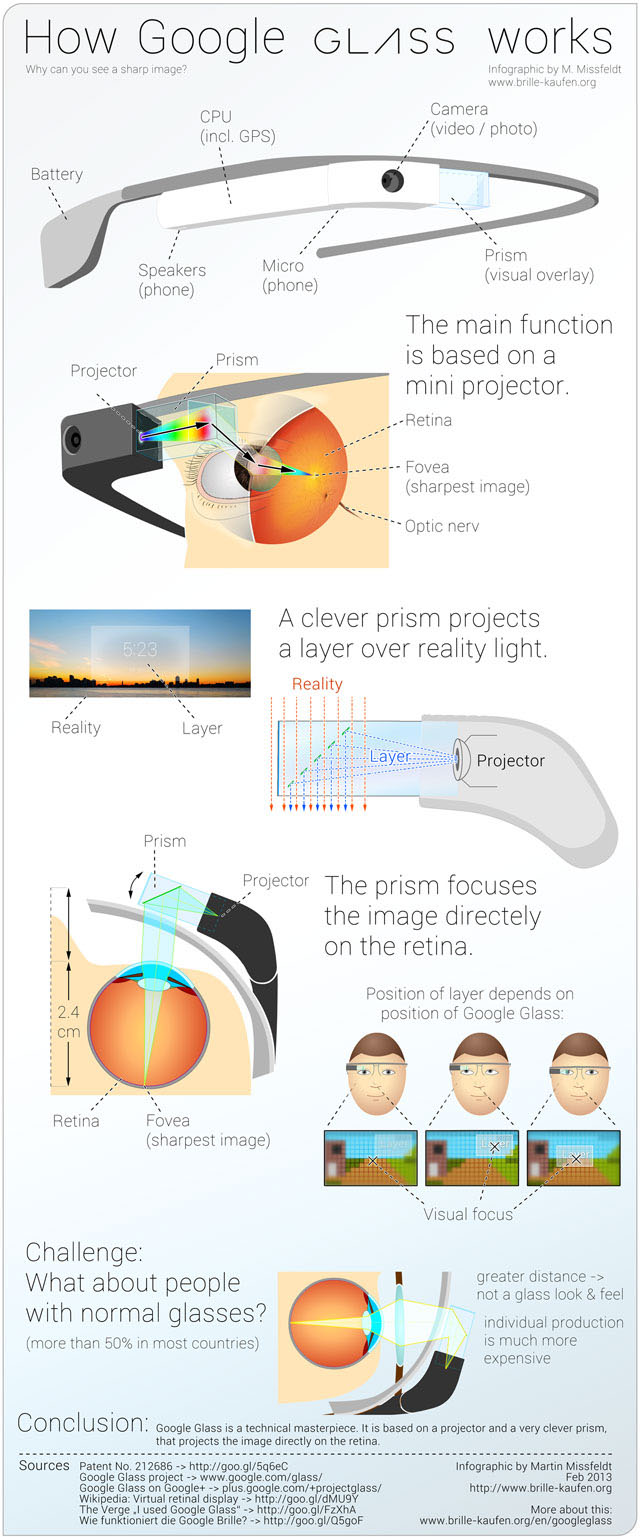Google Glass is the new head-mounted computer being released by Google later this year. The device uses a clever prism design to project an unobtrusive, translucent image over your vision. Users control Glass with voice commands similar to Apple’s Siri.
By uttering the words “ok, glass…” followed by a command, users can order Glass to record videos with the built in camera, search Google for information, check the local weather, and much more. All this information is delivered to you through the amazing prism in front of your eye or through the headphone in your ear. You don’t have to worry about anyone else seeing or hearing what your Glass is showing you.
However, as awesome as Google Glass sounds, many people are concerned about the potential issues that may arise with the device. West Virginia state representative, Gary G. Howell, fears that the device will be distracting to drivers. Even before its release, Glass has been banned from several businesses, especially theaters and strip clubs, for fear of customers using the built in camera to record the showings. Other businesses have banned it for fear of information leaks. However, the biggest concern isn’t protecting businesses; it’s protecting your privacy.
You can hardly go on the internet nowadays without having your browsing habits and personal information sold to third-parties. Even your mobile devices aren’t nearly as private as you think. The places you visit and the businesses you frequent are also sold to third-parties. Google Glass opens new windows that could nearly eradicate your personal privacy. Now, everything that you see or say can potentially be sold to third parties.
How much information is recorded and accessible to third-parties? What if the device is always on, always connected? How susceptible is it to hacking? These questions have been met with assurances that privacy and security are Google’s main concern. Such assurances have been made before and most have turned out to be lies.
Here is a visualization from Android Authority that breaks down the device:



Leave a Reply